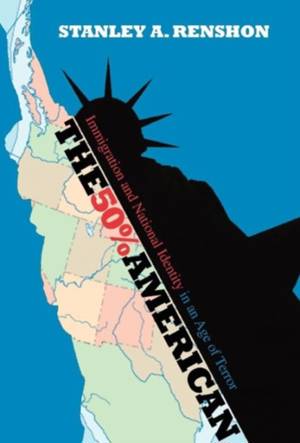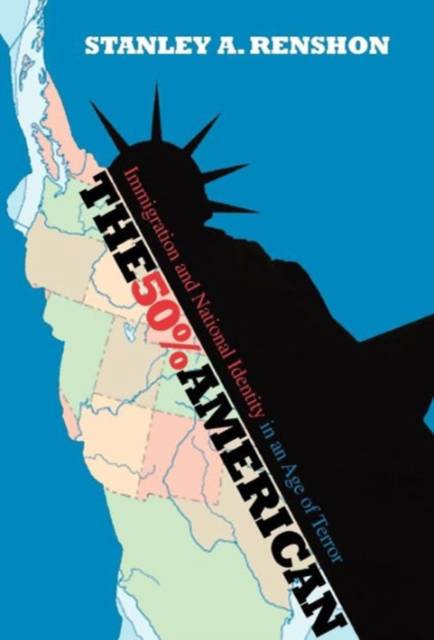
- Retrait gratuit dans votre magasin Club
- 7.000.000 titres dans notre catalogue
- Payer en toute sécurité
- Toujours un magasin près de chez vous
- Retrait gratuit dans votre magasin Club
- 7.000.0000 titres dans notre catalogue
- Payer en toute sécurité
- Toujours un magasin près de chez vous
The 50% American
Immigration and National Identity in an Age of Terror
Stanley A RenshonDescription
The United States is the only nation in the world that allows its citizens to hold one or more foreign citizenships, vote in another nation's elections, run for or be appointed to office in another country, and join the armed forces even of a nation with interests hostile to those of the U.S. while retaining their citizenship. These policies reinforce the often already strong emotional, political, and economic ties today's immigrants retain to their home countries. Yet few studies have addressed what dual citizenship means for the United States as a nation and the integration of immigrants into the American national community. Is it possible to reconcile two different nationalities, cultures, and psychologies? How can we honor immigrants' sense of identity without threatening American national identity? What do Americans have a right to expect of immigrants and what do they have a right to expect of Americans?
In The 50% American political psychologist Stanley Renshon offers unique insight into the political and national ramifications of personal loyalties. Arguing that the glue that binds this country together is a psychological force-patriotism-he explains why powerful emotional attachments are critical to American civic process and how they make possible united action in times of crisis. In an age of terrorism, the idea that we are all Americans regardless of our differences is more than a credo; it is essential to our national security. Comprehensive in scope, this book examines recent immigration trends, tracing the assimilation process that immigrants to the United States undergo and describing how federal, state, and local governments have dealt with volatile issues such as language requirements, voting rights, and schooling. Renshon turns a critical eye to the challenges posed over the past four decades by multiculturalism, cultural conflict, and global citizenship and puts forth a comprehensive proposal for reforming dual citizenship and helping immigrants and citizens alike become more integrated into the American national community.
Spécifications
Parties prenantes
- Auteur(s) :
- Editeur:
Contenu
- Nombre de pages :
- 296
- Langue:
- Anglais
Caractéristiques
- EAN:
- 9781589010673
- Date de parution :
- 01-10-05
- Format:
- Livre relié
- Format numérique:
- Genaaid
- Dimensions :
- 163 mm x 222 mm
- Poids :
- 458 g

Les avis
Nous publions uniquement les avis qui respectent les conditions requises. Consultez nos conditions pour les avis.






